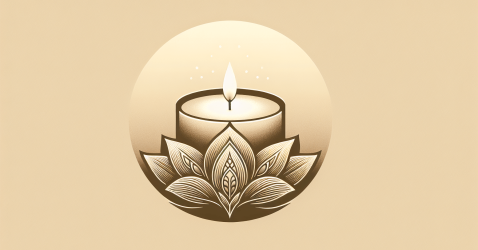The Beauty Of Birdwatching: Nature As Self-Care
Immerse yourself in the calming wonders of nature with the soothing practice of birdwatching. In an increasingly fast-paced world, finding moments of tranquility has become essential for our well-being. The beauty of birdwatching lies in its ability to provide both a mindful and therapeutic experience. As you observe these graceful creatures in their natural habitat, you tap into a sense of connection, grounding, and self-care that rejuvenates the mind, body, and soul. Join the millions who have discovered this delightful pastime and embark on a journey of serenity and exploration. Birdwatching, the practice of observing and identifying birds in their natural habitats, is a hobby that brings countless benefits to individuals. Not only does it offer a deeper connection with nature, but it also promotes improved mental well-being, reduced stress and anxiety, and an opportunity for mindfulness. Engaging in birdwatching can be a form of self-care that allows you to relax, connect with the present moment, boost your mood and mental health, and provide a sense of achievement. In this article, we will explore the various aspects of birdwatching and how it can positively impact your life.
Improved Mental Well-being
One of the greatest benefits of birdwatching is the improvement of mental well-being. Spending time in nature has been proven to have a positive impact on mental health, and birdwatching specifically allows you to immerse yourself in the beauty of the natural world. The peacefulness and tranquility of observing birds in their natural habitats can provide a welcome escape from the noise and stresses of daily life. As you engage in birdwatching, you will find a sense of peace and calm that can help reduce anxiety, improve focus, and enhance your overall mental well-being.
Reduced Stress and Anxiety
In today’s fast-paced and demanding world, stress and anxiety have become common companions. However, birdwatching offers a respite from these burdensome feelings. When you are out in nature, observing birds and their behaviors, you are able to temporarily let go of the stressors of life. The beauty and serenity of the natural environment can help lower stress levels and provide a much-needed break from the pressures of daily life. By redirecting your focus to the wonders of birdwatching, you can experience a sense of relaxation and renewed energy.
Opportunity for Mindfulness
Birdwatching provides a unique opportunity for mindfulness, a state of being fully present in the moment. When you are engaged in observing and identifying birds, your attention is solely directed towards the present experience. You become aware of the sights, sounds, and sensations of nature, helping you connect with the present moment. Through the practice of mindfulness, you can cultivate a sense of calm and contentment, reducing the impact of stress and worries. Birdwatching allows you to embrace the beauty of the natural world and be fully aware of the present moment.
Connection with Nature
Birdwatching is an immersive experience that allows you to connect on a deeper level with the natural world. As you observe birds in their habitats, you gain a greater appreciation for the beauty and diversity of nature. This connection can instill a sense of wonder and awe, reminding you of the intricate balance and harmony that exists in the natural world. Through birdwatching, you become a part of something bigger, fostering a sense of belonging and a deeper understanding of the interconnectedness of all living beings.
When engaging in birdwatching as a form of self-care, several aspects can enhance your experience and promote overall well-being. Creating a birdwatching routine, building your birdwatching skills, fostering mindfulness in nature, and exploring the therapeutic effects of birdwatching are all important elements to consider.
Promotes Relaxation
Creating a birdwatching routine is essential to fully embrace the benefits of this hobby. Selecting the right location can make all the difference in your birdwatching experience. Look for places with diverse habitats and a wide variety of bird species. National parks, nature reserves, and bird sanctuaries often offer ideal environments for birdwatching. By immersing yourself in these serene and beautiful locations, you can create a peaceful and relaxing atmosphere for your birdwatching adventures.
Encourages Mindfulness and Presence
To fully connect with the practice of birdwatching as a form of self-care, cultivating mindfulness and presence is crucial. As you embark on your birdwatching journey, allow yourself to fully immerse in the experience. Slow down and observe the birds and their behaviors with curiosity and an open mind. Practice being fully present in the moment, appreciating the beauty and wonder of each encounter. By focusing your attention on the present, you can let go of distractions and worries, fostering a sense of calm and tranquility.
Boosts Mood and Mental Health
Engaging in regular birdwatching can have a profound impact on your mood and mental health. The beauty and serenity of nature, combined with the joy of observing various bird species, can boost your mood and elevate your overall well-being. Studies have shown that spending time in nature, such as birdwatching, can help reduce symptoms of depression and anxiety. The simple act of immersing yourself in nature’s wonders can have a therapeutic effect on your mental health, providing a much-needed respite from the challenges of everyday life.
Provides a Sense of Achievement
Birdwatching can provide a sense of achievement and satisfaction as you learn to identify different bird species and understand their behaviors and habitats. Each successful identification and observation can bring a feeling of accomplishment and a sense of being attuned to the natural world. Keeping a birdwatching journal can help you track your progress and document your experiences, providing a tangible record of your observations and personal growth. This sense of achievement can boost self-confidence and enhance your overall self-care routine.
Building your birdwatching skills is an ongoing process that deepens your connection with nature and enhances your overall birdwatching experience. Learning to identify different bird species, understanding bird calls and songs, observing bird behavior and habitats, and keeping a birdwatching journal are all integral aspects of honing your skills as a birdwatcher.
Learning to Identify Different Bird Species
Learning to identify different bird species is a fundamental skill in birdwatching. Familiarize yourself with the common birds in your area, their physical characteristics, and their behavioral patterns. Field guides and online resources can provide valuable information and visual aids to aid in bird identification. With practice and keen observation, you will develop an eye for recognizing the unique features and behaviors of various bird species.
Understanding Bird Calls and Songs
Bird calls and songs play a vital role in bird communication and can be used as a helpful tool for bird identification. By familiarizing yourself with the distinct vocalizations of different bird species, you can enhance your birdwatching experience. Pay attention to the pitch, rhythm, and pattern of bird calls, and take note of any unique or recognizable songs. A deeper understanding of bird vocalizations will enrich your birdwatching adventures, allowing you to identify birds even when they are hidden from view.
Observing Bird Behavior and Habitats
To truly understand the world of birds, it is important to observe their behavior and the habitats they inhabit. Spend time watching how birds interact with their environment, their feeding habits, and their nesting behaviors. By observing their preferred habitats, such as forests, wetlands, or grasslands, you can increase your chances of sighting different bird species. Understanding a bird’s behavior and habitat preferences will deepen your appreciation for their ecological role and enhance your overall birdwatching experience.
Keeping a Birdwatching Journal
Keeping a birdwatching journal is a valuable practice that allows you to document your observations, experiences, and personal insights. Record the date, time, and location of your birdwatching outings, along with any notable bird species you encounter. Take notes on their behaviors, vocalizations, and any unique observations you make. Your journal becomes a personal record of your growth as a birdwatcher and a cherished memento of your time spent in nature. It also serves as a valuable reference for future outings and aids in tracking seasonal patterns and migratory movements of bird species.
Fostering mindfulness in nature is an essential aspect of birdwatching as a self-care activity. Engaging the senses, practicing deep observation, appreciating the beauty of the natural world, and finding stillness in nature are all ways to enhance your mindfulness practice during birdwatching.
Engaging the Senses
Birdwatching offers a unique opportunity to engage all your senses in the present moment. As you navigate nature trails and observe birds, notice the colors and patterns on their feathers, the melodic sounds of their calls, and the gentle rustle of the leaves. Breathe in the fresh air, feel the warmth of the sunlight on your skin, and take in the scents of the surrounding plant life. By immersing yourself in the sensory experience of birdwatching, you can fully connect with the present moment and deepen your mindfulness practice.
Practicing Deep Observation
Birdwatching is not only about spotting birds but also about observing and understanding their behaviors. Take the time to patiently watch birds as they forage, build nests, or engage in courtship displays. Observe their interactions with other birds and their surroundings. By practicing deep observation, you can gain a deeper understanding of the intricate lives of birds and appreciate their role in the ecosystem. This level of observation also allows you to truly appreciate the diversity and wonder of the natural world.
Appreciating the Beauty of the Natural World
Birdwatching provides an opportunity to appreciate the awe-inspiring beauty of the natural world. Take a moment to marvel at the vibrant colors of a cardinal, the graceful flight of a heron, or the intricate patterns on a hummingbird’s wings. Each encounter with a bird is a reminder of the exquisite design and diversity of the natural world. By actively appreciating the beauty around you, you can cultivate a sense of gratitude and wonder, further enhancing your self-care experience.
Finding Stillness in Nature
In our fast-paced, technology-driven lives, finding moments of stillness can be challenging. Birdwatching offers a chance to slow down, disconnect from the busyness of everyday life, and find stillness in nature. As you sit quietly, focused on observing the birds, you allow yourself to become fully present in the moment. The peacefulness and tranquility of nature create a space for introspection and reflection. In this stillness, you can find clarity, recharge your energy, and nurture your well-being.
Birdwatching not only provides personal benefits but also has therapeutic effects that contribute to our overall well-being. The restorative power of spending time outdoors, the human-nature connection through biophilia, and the role of birdwatching in ecotherapy are all aspects worth exploring.
Nature as a Source of Stress Relief
Spending time in nature has long been recognized as a source of stress relief and relaxation. The calming effect of the natural environment can lower blood pressure, reduce cortisol levels, and promote a sense of well-being. Birdwatching, with its focus on nature observation, allows for a deeper connection with the natural world, amplifying the therapeutic benefits. Whether it’s the rhythmic sound of ocean waves or the gentle rustling of leaves, nature has a way of soothing the mind and body, making birdwatching an excellent self-care activity.
Biophilia and the Human-Nature Connection
Biophilia refers to the innate human love and affinity for the natural world. As social creatures, we have an evolutionary connection to the environment in which we thrive. Birdwatching taps into this primal connection, allowing us to witness and appreciate the beauty and wonder of the natural world. By engaging in birdwatching, we strengthen our bond with nature, reaping the benefits of increased well-being and a sense of belonging. The human-nature connection nurtures our spirit and reminds us of our place within the intricate web of life.
The Role of Birdwatching in Ecotherapy
Ecotherapy, also known as nature therapy, is a form of therapy that utilizes the healing power of nature to improve mental, emotional, and physical well-being. Birdwatching plays a significant role in ecotherapy, offering a gentle and immersive way to connect with the natural environment. It allows individuals to step away from the stresses of daily life and find solace in the tranquil world of birds. By engaging in birdwatching as an ecotherapy practice, individuals can experience a sense of peace, healing, and restoration.
The Restorative Benefits of Spending Time Outdoors
Spending time outdoors has numerous restorative benefits for our overall well-being. Exposure to natural light, fresh air, and the sights and sounds of nature can uplift our mood, boost our immune system, and improve cognitive function. Birdwatching encourages us to explore and embrace the natural world, providing an opportunity for both physical and mental rejuvenation. The gentle exercise involved in birdwatching, coupled with the restorative aspects of nature, makes it an ideal self-care activity for individuals of all ages.
Community plays a vital role in birdwatching, providing opportunities for connection, collaboration, and shared experiences. Connecting with fellow birdwatchers, participating in citizen science projects, joining local birdwatching clubs and societies, and sharing experiences and knowledge are all ways to foster a sense of community in birdwatching.
Connecting with Fellow Birdwatchers
Birdwatching is not just an individual activity; it is a way to connect with like-minded individuals who share a passion for birds and nature. Whether it’s attending local birdwatching events, joining online birdwatching communities, or simply striking up a conversation with fellow birdwatchers at a popular birding spot, the opportunity to connect and share experiences is abundant. These connections can lead to lasting friendships, mentorship opportunities, and a sense of belonging within the birdwatching community.
Participating in Citizen Science Projects
Citizen science projects offer individuals the chance to contribute valuable data and observations to scientific research and conservation efforts. Birdwatchers can actively participate in various citizen science initiatives that monitor bird populations, behavior patterns, and migration routes. By engaging in these projects, birdwatchers not only deepen their understanding of bird species but also contribute to scientific knowledge and conservation efforts. Participating in citizen science projects provides a sense of purpose and community, making birdwatching a meaningful and impactful self-care activity.
Joining Local Birdwatching Clubs and Societies
Local birdwatching clubs and societies are great resources for birdwatchers of all skill levels. These organizations often organize group outings, educational events, and guest speaker presentations on a range of bird-related topics. Joining a local birdwatching club allows you to connect with experienced birdwatchers, learn from their expertise, and share your own knowledge and experiences. The camaraderie and support within these communities foster a sense of belonging and provide opportunities for personal growth in your birdwatching journey.
Sharing Experiences and Knowledge
Birdwatching is a hobby filled with wonder and discovery, and sharing your experiences and knowledge with others can enrich both your own understanding and the birdwatching community as a whole. Whether it’s through social media platforms, birdwatching forums, or local meetups, sharing photos, stories, and observations allows others to learn from your experiences. By engaging in these conversations, you can foster a sense of community, inspire others to explore the world of birdwatching, and continue to deepen your own passion and knowledge.
Birdwatching can be practiced either as a solo activity or as a social endeavor, depending on your personal preference and circumstances. Both approaches offer unique benefits and joys, whether it is finding solitude and tranquility in birdwatching alone or enjoying shared experiences with fellow enthusiasts.
Finding Solitude and Tranquility in Birdwatching
Birdwatching as a solo activity offers a chance for solitude and self-reflection. It allows you to set your own pace, choose your preferred locations, and immerse yourself fully in the natural world. Solo birdwatching can provide a much-needed break from the demands of social interaction and offer a space for quiet contemplation. It allows you to connect deeply with nature, observe birds at your own pace, and find solace and tranquility in the presence of the natural world.
Enjoying Shared Experiences with Fellow Enthusiasts
On the other hand, birdwatching can also be a richly rewarding social activity. Sharing birdwatching experiences with fellow enthusiasts offers a chance to learn from each other, exchange insights and stories, and build lifelong friendships. In a group setting, different perspectives and knowledge can enhance the overall birdwatching experience. Birdwatching with others also provides an opportunity to explore new locations, share equipment, and enjoy the collective excitement of discovering and observing birds together.
Finding Balance between Solitude and Social Engagement
Balancing solitude and social engagement in birdwatching is essential for personal well-being and enjoyment. Some days, you may find solace and fulfillment in exploring nature alone, deepening your connection with the environment. Other times, you may seek the camaraderie and shared experiences of birdwatching with friends or fellow enthusiasts. By honoring your personal needs and preferences, you can find a balance that allows you to fully enjoy the benefits of both solitude and social interaction in birdwatching.
The Joys of Shared Discoveries
Sharing the joy of birdwatching with others amplifies the pleasure and excitement of discovery. Pointing out a rare bird or witnessing a remarkable behavior together creates a shared memory that enhances the overall birdwatching experience. The collective enthusiasm, knowledge, and support within a group can help identify challenging species and offer encouragement to novice birdwatchers. The joys of shared discoveries build bonds and create lasting connections, making birdwatching a truly enjoyable and enriching pursuit.
While birdwatching can be a rewarding and fulfilling activity, it also comes with its share of challenges. Dealing with weather conditions and seasonal changes, navigating difficult terrain and locations, handling disappointments and missed sightings, and adapting to different birdwatching environments are all obstacles that birdwatchers may encounter.
Dealing with Weather Conditions and Seasonal Changes
Weather conditions and seasonal changes can significantly impact birdwatching outings. Rain, fog, extreme temperatures, or strong winds can deter birds from being active or make them difficult to spot. It is important to plan your birdwatching outings accordingly, taking into consideration the weather forecast and the behavior of bird species in different seasons. Being prepared with appropriate clothing and gear will ensure your comfort and increase your chances of successful birdwatching, regardless of the weather conditions.
Navigating Difficult Terrain and Locations
Bird species often inhabit diverse and sometimes challenging habitats, which may require navigating difficult terrain. This can include steep hills, dense forests, or marshy wetlands. It is important to be prepared physically and mentally for such conditions, especially if you have any physical limitations. Researching and planning ahead will help you choose locations that are suitable for your fitness level and capabilities. Additionally, investing in good-quality footwear and carrying essential gear, such as hiking poles or insect repellent, can make your birdwatching adventures more enjoyable and comfortable.
Handling Disappointments and Missed Sightings
Birdwatching is often a game of patience and persistence, and not every outing will yield the desired results. There may be times when you miss a sighting or fail to observe a particular species. It is essential to approach these disappointments with a positive mindset and remember that birdwatching is also about enjoying the journey and the process. Embrace the unpredictability of nature and learn from missed sightings or unsuccessful outings. Every birdwatching experience, regardless of the outcome, contributes to your growth as a birdwatcher and offers valuable lessons in patience and resilience.
Adapting to Different Birdwatching Environments
Birdwatching environments can vary greatly, from open grasslands to dense rainforests. Each environment presents its own set of challenges and requires different strategies for successful birdwatching. It is crucial to adapt to different environments by familiarizing yourself with the specific bird species and their behaviors in each habitat. Researching beforehand, seeking local knowledge, and being flexible in your approach will ensure a fruitful birdwatching experience in various environments. Embrace the diversity of bird habitats and explore the unique bird species that each environment has to offer.
Preserving the natural environment for birdwatching and ensuring the well-being of birds is essential for the sustainability of this beloved hobby. Supporting local conservation efforts, practicing ethical birdwatching and bird photography, creating bird-friendly habitats in your own backyard, and educating others about the importance of protecting birds and their habitats are all crucial actions to take.
Supporting Local Conservation Efforts
Birdwatchers can play a vital role in supporting local conservation efforts by contributing to organizations dedicated to the protection of birds and their habitats. Donating to conservation organizations, participating in bird counts and surveys, and volunteering for habitat restoration projects are all ways to lend a helping hand. By actively engaging in conservation efforts, birdwatchers ensure the conservation of bird species for future generations to enjoy.
Practicing Ethical Birdwatching and Bird Photography
As birdwatchers, it is important to prioritize the well-being of birds and their habitats. Practicing ethical birdwatching and bird photography is essential in minimizing disturbances and protecting the birds themselves. This includes maintaining a safe and respectful distance from birds to avoid causing stress or interfering with their natural behavior. Refraining from using flash photography near birds, especially during nesting seasons, is also important. By being mindful and adhering to ethical guidelines, birdwatchers contribute to the preservation and well-being of birds and their habitats.
Creating Bird-Friendly Habitats in Your Own Backyard
If you have a backyard or garden space, you can play a proactive role in creating bird-friendly habitats. Planting native trees, shrubs, and flowers can provide essential food sources, nesting sites, and shelter for birds. Incorporating water features, bird feeders, and nesting boxes can further enhance the appeal of your space for various bird species. By creating a welcoming environment for birds, you not only attract a diversity of species but also contribute to their survival and overall well-being.
Educating Others about the Importance of Protecting Birds and Their Habitats
Sharing your knowledge and passion for birdwatching can inspire others to appreciate and protect birds and their habitats. Educating friends, family, and your local community about the importance of bird conservation can create a ripple effect of awareness and action. Use your voice, social media platforms, or local educational events to raise awareness about the value of birds, their vital role in ecosystems, and the need to preserve their habitats for future generations. By empowering others to get involved, you contribute to a collective effort in protecting birds and their habitats.
In conclusion, birdwatching is a wonderful form of self-care that offers numerous benefits for mental well-being, stress reduction, and mindfulness. Through building your birdwatching skills, fostering mindfulness in nature, and exploring the therapeutic effects of birdwatching, you can deepen your connection with the natural world and promote overall well-being. The sense of community, shared experiences, and the joys of discovery make birdwatching a rewarding and fulfilling activity. By overcoming challenges, preserving the natural environment, and educating others, you can contribute to the sustainability and conservation of birds and their habitats. So, grab your binoculars, field guide, and a sense of wonder, and embark on a journey of self-care through the beauty of birdwatching.
















